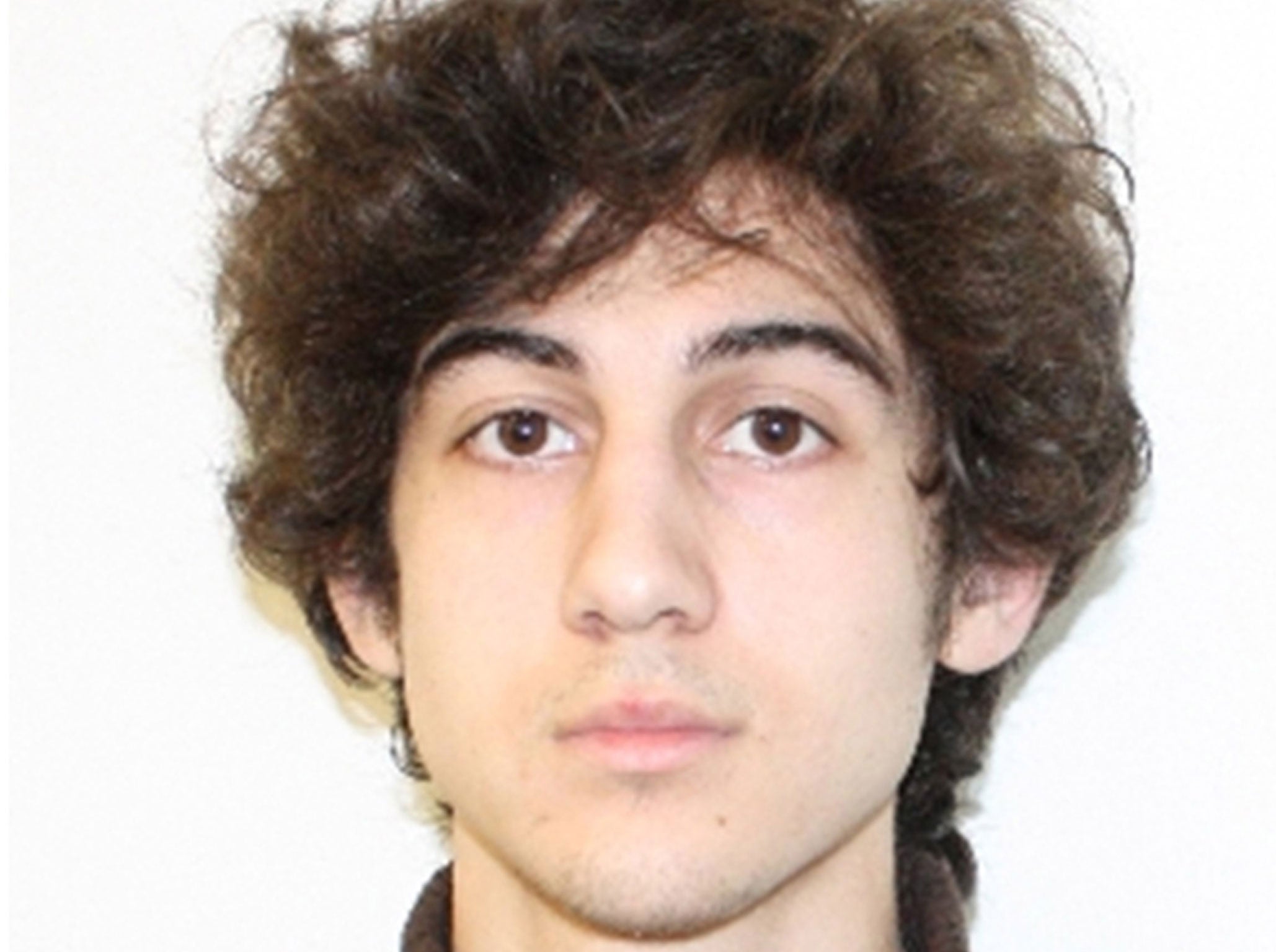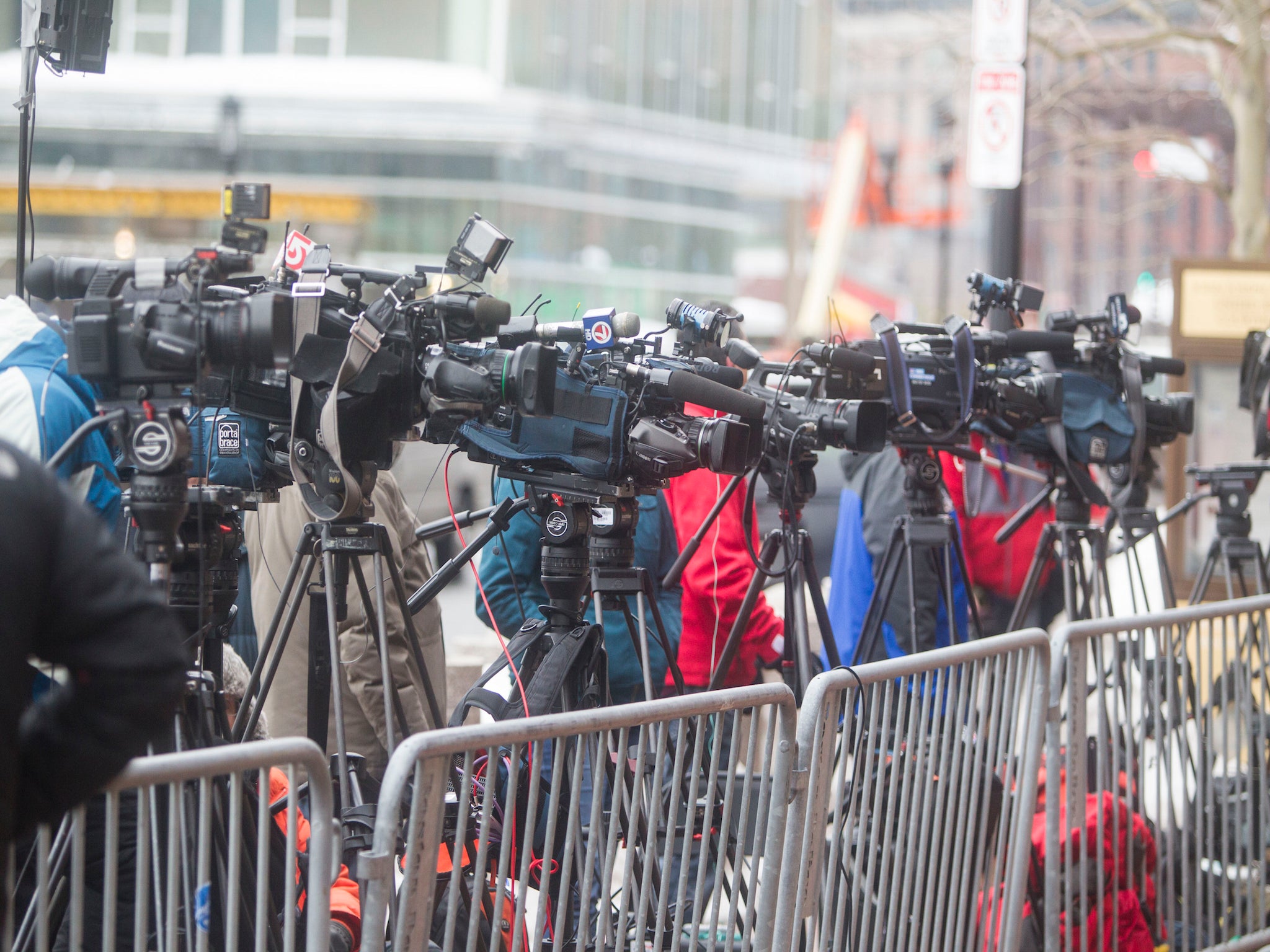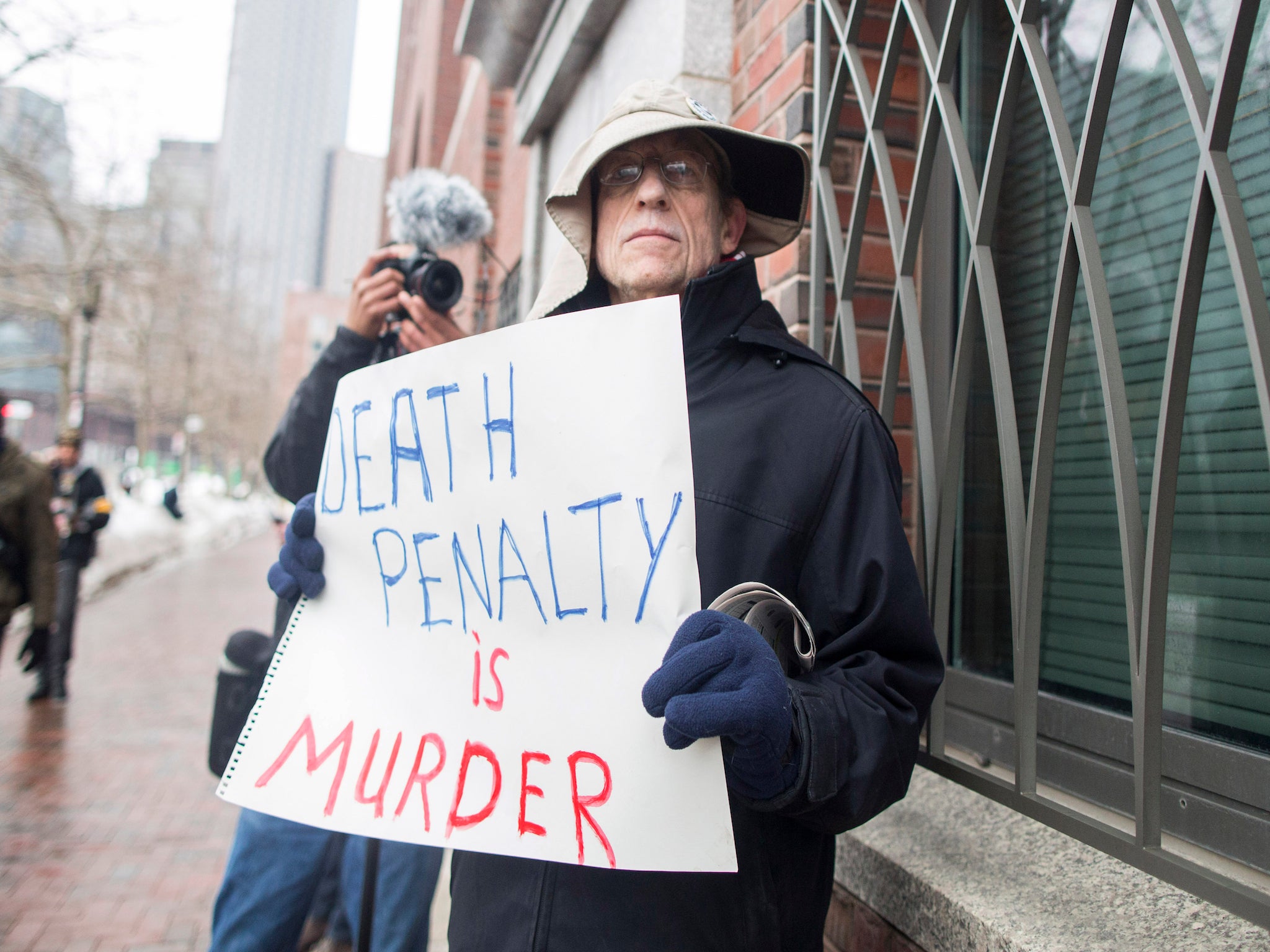Boston Marathon bombing trial: Defendant Dzhokhar Tsarnaev 'didn't have a care in the world' after attack, court told
Trial of man accused of 2013 attack has started after several delays

The man who set off one of the bombs that ripped through spectators at the Boston marathon, killing three and injuring 260, went shopping for a gallon of milk even as his victims fought for their lives on the pavement, a hushed courtroom was told today. Describing how Dzhokhar Tsarnaev visited a branch of the Whole Foods organic supermarket after the bombing, Assistant District Attorney William Weinreb said: “He didn’t have a care in the world. He believed what he had done was good, was something right.”
Mr Tsarnaev – whose brother, Tamerlan, was killed in a gun battle with police three days after the attack – faces 30 separate charges arising from the blasts two years ago, 17 of which could bring the death penalty in his trial, in a trial expected to last three months.
Delayed for almost two months by snowstorms and the complications of finding jurors judged open-minded enough to assess the evidence, the trial that finally began today will force reluctant Bostonians to revisit events of 15 April 2013 – a day of horror and tragedy that has scarred their city for ever.
The home-made bombs, built inside pressure cookers, fragmented into a hail of deadly missiles and left some of its survivors with hideous, permanent injuries.
“In the coming weeks we are all going to come face to face with unbearable grief, loss and pain,” defence lawyer Judy Clarke said in her opening statement. But she signalled that she would not deny her client’s guilt as perpetrator of the “senseless” attack. “There is little that happened on the week of 15 April 2013 we will dispute,” said Ms Clarke, a leading death penalty defence lawyer. “It was him.”

Mr Weinreb described in chilling detail the scene at the finishing line after the two bombs went off. He said the defendant and his brother placed each device amid thick crowds to cause maximum human harm. Earlier the brothers had also shot and killed a campus police officer at the Massachusetts Institute of Technology.
The spot picked by the defendant was outside a restaurant called Forum and behind a row of children pressed against the course railings, Mr Weinreb said. “One person the defendant murdered that day was Martin Richard. Martin was eight years old. The bomb tore large chunks of flesh out of Martin’s body. Martin bled to death on the sidewalk as she [his mother] looked helplessly on.”
The brothers, ethnic Chechens who had lived in the former Soviet republic of Kyrgyzstan and the Dagestan region of Russia, were bent on stopping America from targeting Muslims overseas in the war on terror, Mr Weinreb said. The defendant “believed that he was a soldier in a holy war against Americans”, he asserted. “He did it because he believed America had to be punished for killing Muslims overseas.”

Images of all three of those who died at the marathon course, alive and smiling, were flashed on monitors in the court as Mr Weinreb ended his statement. Ms Clarke made clear that her task will not be to persuade jurors that her client did not commit the crimes as described by the government – and captured on television footage that was broadcast around the world at the time – but to save him from death row. The first phase of the trial will deal with the facts of the bombings and the killing of the police officer. The second phase will consider the punishment, which, if Mr Tsarnaev is found guilty of all charges, could be life in prison or death.
Ms Clarke will contend that Mr Tsarnaev was in the thrall of his older brother – they were 19 and 26 respectively at the time – who led him down a path to murder. “The evidence will not establish, and we will not argue, that Tamerlan put a gun to Dzhokhar’s head, or that he forced him to join in on the plan,” she said, “but you will hear evidence about the kind of influence that his older brother had.
“It was Tamerlan Tsarnaev who radicalised, it was Dzhokhar Tsarnaev who followed him,” Ms Clarke said, as her client, in an open-necked shirt and jacket, watched from the defence table, alternately slouching or sitting forward and tapping his fingers. “He was drawn into his brother’s passion and plan and that led him to Boylston Street,” where the last stretch of the marathon is run in the centre of Boston.
Later in the trial, which may last as long as three months, the prosecution is expected to show the jurors a confession, allegedly scrawled by the defendant inside the boat where he was hiding when captured at the climax of a chase on 18 April that led to a virtual lockdown of Boston and its suburbs. “The US government is killing our innocent civilians but most of you already know that... I can’t stand to see such evil go unpunished. We Muslims are one body, you hurt one you hurt us all,” it said.
There is unusually tight security at the federal courthouse in Boston and a thicket of cameras and reporters, and about a dozen victims of the bombing and family members filed in early to witness the first full day of the trial – including dancer Heather Abbott and Marc Fucarile, both of whom lost legs in the blasts.
There was no sign of any pro-Tsarnaev protesters that the defence team had suggested might gather outside the courthouse, and cited as one a reason for the trial to be moved elsewhere. In all, the defence submitted four motions for a change of venue, all of which were rejected by Judge George O’Toole. One lone protester held up a hand-written sign asserting that the death penalty equals murder. “This man should not be given the death penalty. That’s why I’m here,” said Joe Kebartas, a 66-year-old retiree. “No one should be put to death in this country.”
Join our commenting forum
Join thought-provoking conversations, follow other Independent readers and see their replies
Comments